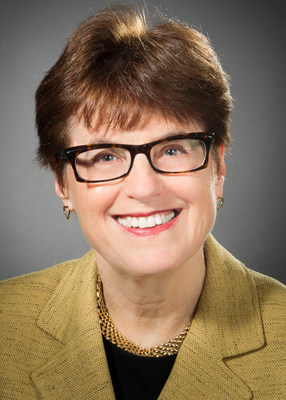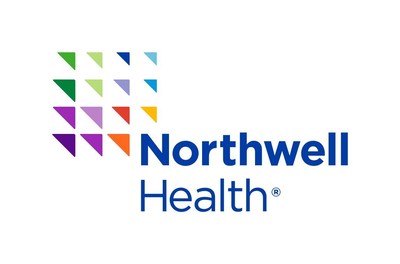Subject: SVY
Researchers recommend expanding screening for domestic abuse
MANHASSET, N.Y., Oct. 23, 2018 /PRNewswire/ -- Health systems need to expand the science around routine screening and interventions for domestic abuse to include men, the elderly and vulnerable populations, according to an editorial published today in the Journal of the American Medical Association (JAMA).

Feinstein Institute for Medical Research Professor Karin Verlaine Rhodes, MD, MS, researcher Kristofer Smith, MD, and their collaborators from the University of Pennsylvania made the recommendations in response to the latest guidelines from the US Preventative Services Task Force (USPSTF) released in the same issue of JAMA. The 2018 evidence-based guidelines call for the routine screening of intimate partner violence only in women of childbearing age, a recommendation that has been strengthened by more evidence of the lack of harm from abuse screening. These guidelines have not otherwise changed since the 2013 USPSTF recommendations. The USPSTF finds that the evidence for broadening this recommendation to include screening non-childbearing age women, men, the elderly and other vulnerable patients, however, remains "inconclusive," largely due to lack of studies in these populations.
In their commentary, Rhodes and co-authors cover some of the challenges involved in conducting randomized controlled trials with abused and vulnerable populations. The fact that high-quality routine screening in health care settings has not been integrated into routine clinical care has created numerous barriers for both providers and patients, and made it difficult to study the effectiveness of screening and subsequent interventions. In addition, ethically, all patients identified as experiencing abuse need to get some intervention, so there is rarely a true "usual care" control group.
"While we are very supportive of the USPSTF guidelines that recommend routine screening for abuse among all women of childbearing age, there are other groups at risk, such as women outside of reproductive age, men, the elderly and other vulnerable populations," said Dr. Rhodes, vice president of Care Management Design & Evaluation at Northwell Health's Office of Population Health Management. "The roadblocks to expanding the guidelines are challenges in enrolling and conducting longitudinal clinical trials with patients suffering from abuse. However, the well-known long-term adverse physical and mental health consequences of abuse also create the imperative to identify new methods of screening and intervening in this highly prevalent problem."
Drs. Rhodes and Smith are both actively engaged in the Health Solutions business unit that helped move Northwell Health towards value-based care. As such, they offer a unique perspective on some of the emerging trends in care delivery redesign that may facilitate effective screening implementation and help build the evidence for effectiveness of interventions for abuse. They point out that there is increasing recognition of the high costs of failing to screen and address health-related social factors, including intimate partner violence. The increasing importance of identifying and intervening to address social determinants can translate into new opportunities to recognize and test targeted interventions for abuse.
New areas of opportunity for screening and intervention include patient portals that provide patient-administered screening, education and links to resources. Patient self-administered screening is also associated with greater disclosure and can reduce clinical burden, obligating clinicians to spend time addressing only positive or non-completed screens. Patient-centered medical home clinical transformation efforts help practices meet the needs of high-risk patients and integrating social and behavioral health along with coordination with community-based services.
The movement to value-based payments encourages providers to accept risk for total cost of care for attributed populations. This has increased the willingness of payers to risk adjust and reimburse for a broad array of outcome-important social factors, including violence and abuse. There is recognition that abuse is associated with a variety of costly outcomes, including higher health care utilization, necessitating structural changes that will enable screening and the testing of interventions. The use of predictive analytics also provides an alternative to randomized clinical trials through use of large scale databases to track outcomes from interventions with at risk populations.
"Screening for abuse among vulnerable and elderly populations is a neglected area that is receiving increasing national attention," said Dr. Smith, senior vice president of Population Health at Northwell Health and a geriatrician who provides home-based primary care. "In addition to screening for and addressing caregiver strain among family members, geriatricians can build on trusted long-term relationships to explore psychosocial issues such as abuse."
He notes that "The use of multidisciplinary teams for care coordination is a promising intervention that needs to be rigorously tested."
The authors agree with the USPSTF that further research is needed to advance evidence for broadening screening recommendations. They caution that screening for abuse always needs to be conducted with careful attention to confidentiality, safety and respect for individual self-determination in documentation and follow-up intervention. They also call for greater federal funding for research that can identify effective prevention as well as the testing of potential interventions for those who have suffered abuse.
"Drs. Rhodes and Smith are leaders in advocating for research in the important field of screening recommendations for at risk populations," Kevin J. Tracey, MD, president and CEO of the Feinstein Institute.
About the Feinstein Institute
The Feinstein Institute for Medical Research is the research arm of Northwell Health, the largest health care provider in New York. Home to 50 research laboratories and to clinical research throughout dozens of hospitals and outpatient facilities, the Feinstein Institute includes 4,000 researchers and staff who are making breakthroughs in molecular medicine, genetics, oncology, brain research, mental health, autoimmunity, and bioelectronic medicine ? a new field of science that has the potential to revolutionize medicine. For more information about how we empower imagination and pioneer discovery, visit FeinsteinInstitute.org.
Contact:
Heather E. Ball Mayer
516-465-7917
[email protected]

SOURCE The Feinstein Institute for Medical Research
These press releases may also interest you
|
News published on and distributed by:



